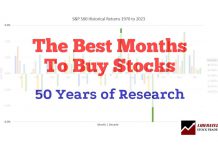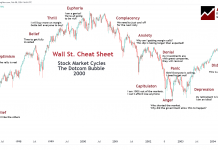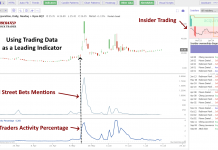★ Stock Trading Guides ★
- Stock Trading
- Day Trading Guide
- AI Trading & Strategies
- Algorithmic Trading Guide
- 5 Professional Trading Courses
- Trading the News
- Swing vs. Day Trading
- Swing Trading Guide
- Swing Trading Strategies
- Stock Options
- Are Options Gambling
- Scalping
- Is Trading Gambling
- Trading Parabolic Stocks
- Buy the Rumor
- Fomo
- King of Quants
- Buying Stocks
- Short Sellling
- How the Market Works
- Futures Beginner Guide
- Learning to Trade Guide
- Next Section – Investing >>
Stock Trading Guides
Discover our ultimate collection of stock trading guides crafted from 25 years of experience! Dive into our comprehensive resources on day and swing trading to learn effective strategies for buying stocks.
The Truth About AI Trading & The Strategies & Tools to Use
Most AI trading tools do not use real AI machine learning and large language models. The majority of self-proclaimed AI trading tools are algorithmic and do not actually learn.
Best Month to Buy Stocks: 53-Year Market Analysis
According to our research, using 53 years of stock exchange data, the best time to buy stocks is in October, and the best time to sell stocks is in July.
Trading the Santa Claus Rally Based on 31 Years of Data Analysis
Based on our data analysis, the Santa Rally phenomenon is indeed observable. Our findings indicate average stock price rises of 1.74% in October, 2.40% in November, and 0.56% in December.
Master the Market With Our Free Wall Street Cheat Sheet
Our Wall Street Cheat Sheet is a roadmap for navigating the emotional highs and lows investors face during market cycles. Each phase reflects a collective sentiment that can influence financial markets and, subsequently, stock price movements.
Should You Buy the Rumor and Sell the News? Does it Work?
"Buy the Rumor, Sell the News" means being one step ahead of other traders by reading the price and volume action leading up to a news or earnings announcement.
Insider Trading: How to Find, Analyze & Profit From It
Legal insider trading happens when corporate insiders trade their own company's stock following SEC reporting rules. Illegal insider trading, in contrast, involves trading a public company's stock based on nonpublic, material information.






